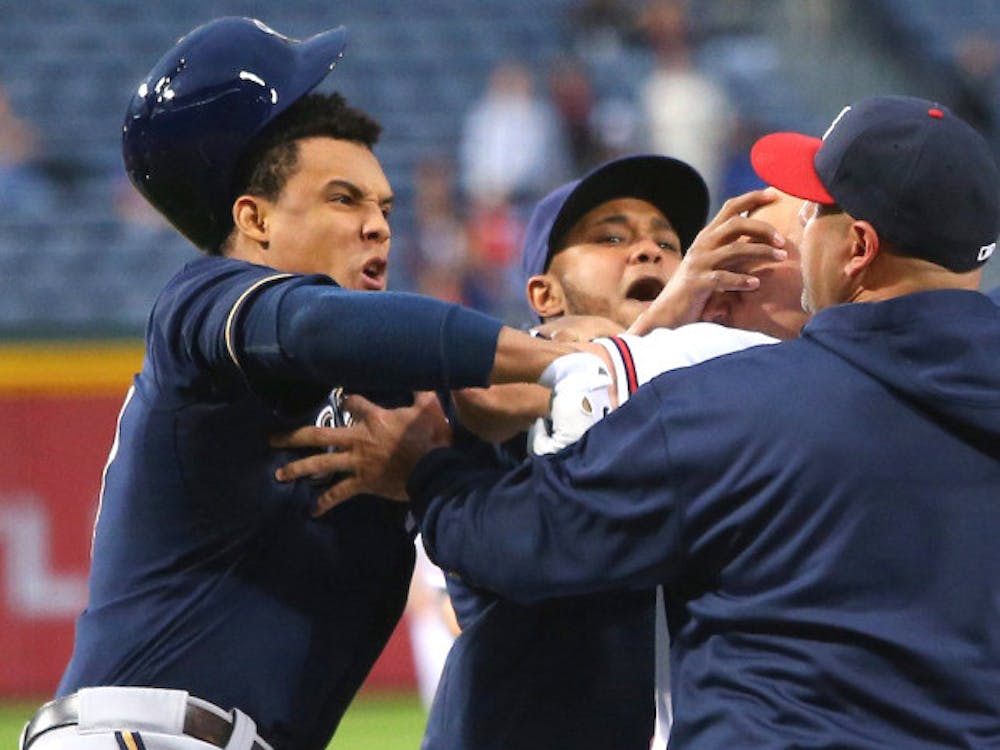By Matthew Ajaj
Staff Writer
Baseball is rooted in American tradition: it has survived two world wars and the Great Depression, it has subsisted through scandal and steroids, it has broken hearts and broken the color barrier. Founded in 1903, Major League Baseball has been an enduring part of American culture for over a century. Although today it has been overshadowed by football and basketball to an extent, the appeal of modern baseball largely subsists through its rich history.
The annals of MLB read almost like a fairy tale: Lou Gehrig’s farewell address, Don Larsen’s perfect playoff game and Hank Aaron’s 715th home run are truly magical moments that seem surreal to those who were not able to experience them in person. Legendary players like Babe Ruth and Willie Mays are perceived with grand reverence in baseball lore as their dominance would seem preposterous if it were not for some grainy footage to serve as evidence. Through these mythical moments and players, fans of all ages and eras have come to love the sport and have adorned baseball as “America’s National Pastime.”
With such a title comes a requisite of respect. As with any great tradition, its participants are expected to hold their custom with veneration and deference. In MLB’s long lifespan, no player was ever too big for the sport — every competitor was and is expected to follow the unwritten rules of the game. So what exactly does “respect for the game” mean? There are many specifics, but the overall message is that players must show respect for their fellow competitors and carry themselves with an air of humbleness.
When a player hits a home run and stares arrogantly at their shot while flamboyantly flipping their bat in the air, this is taken as a sign of disrespect to the pitcher, the opposing team and towards the game itself. Other common occurrences of disrespect include trash talking, refusing to run out weakly-hit balls and running up the score when having a big lead. These actions of disrespect are often met with retaliation, which usually comes in the form of plunking the offenders with a fastball to the midsection. Pitchers are often tossed out of the game for intentional beanballs, and habitually the benches will clear and a brawl may start because of these matters.
Recently, some baseball writers have commented that there are notions of nativism and racism within the game today. These remarks derive from studies which state that most of baseball’s heated altercations in recent years have occurred between players of different ethnicities — every incident in 2015 was between players of dissimilar ethnicities. These commenters have been quick to lay the blame on the white players and their supposedly outdated notion of “respect for the game.” This is an unfair criminalization which aims to attack the sport and players at the macro level — in reality, this is an individual-based problem.
Houston Astros outfielder Carlos Gomez, whose arrogant attitude is unwelcomed by opposing teams, and Kansas City Royals pitcher Yordano Ventura, who does not take kindly to giving up hits, are at the forefront of the issue. These two players have combined to cause the benches to clear seven times in the past four years. Time and again, scuffles will arise from their lack of respect toward the other team, usually because of Gomez’s admiration of his home runs and Ventura’s constant jabbering at opposing hitters. Some may say that these actions do not necessitate retaliation as they are innocuous acts that are stigmatized simply because they do not meet white players’ standards. These cynics fail to realize that “respect for the game” is not a white philosophy but rather a collective policy in American baseball. Blacks, whites, Latinos, Asians and players of any other race or ethnicity have always been obliged to respect their fellow players and the game itself since they joined America’s major leagues.
“Respect for the game” exists because it safeguards a key piece of American culture. MLB’s unwritten code is an essential element of the game. When a player steps onto a baseball field, he must acknowledge and respect the established culture of the ballpark. For example, the Korean leagues are often much more flamboyant as home run hitters are encouraged to flip their bats in extravagant celebration. That is all well and good in its own right because that is customary of these players’ respective league. American baseball, however, has developed a much different culture with a distinct ethical code.
American ballplayers’ willingness to uphold the culture of their sport is not an act of nativism nor racism, contrary to what some critics might say. Rather, it is a measure of players’ dedication to a game that has brought them great joy and transcended generations of Americans. Like it or not, “respect for the game” is a defining feature of American baseball and it is not going away any time soon.







